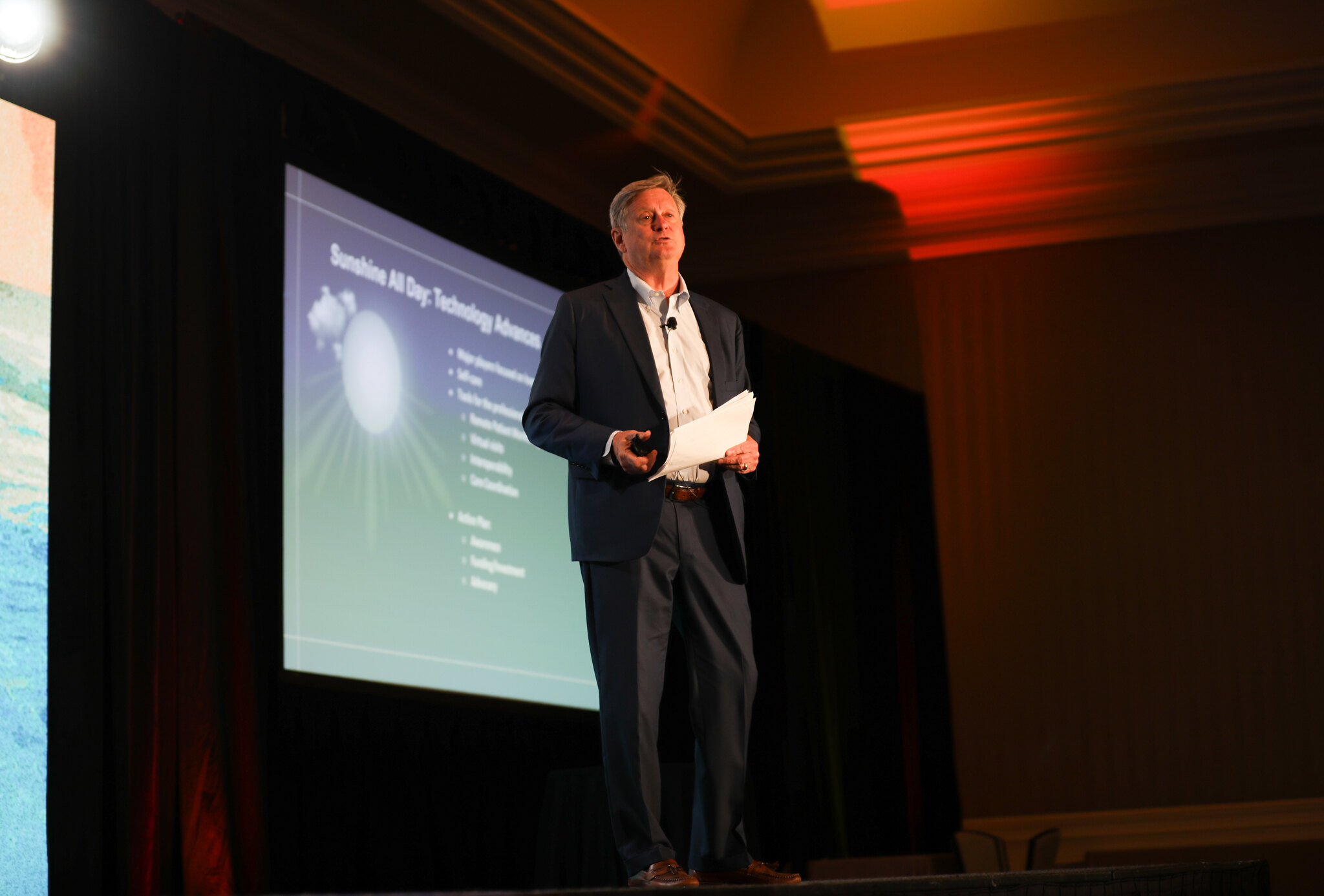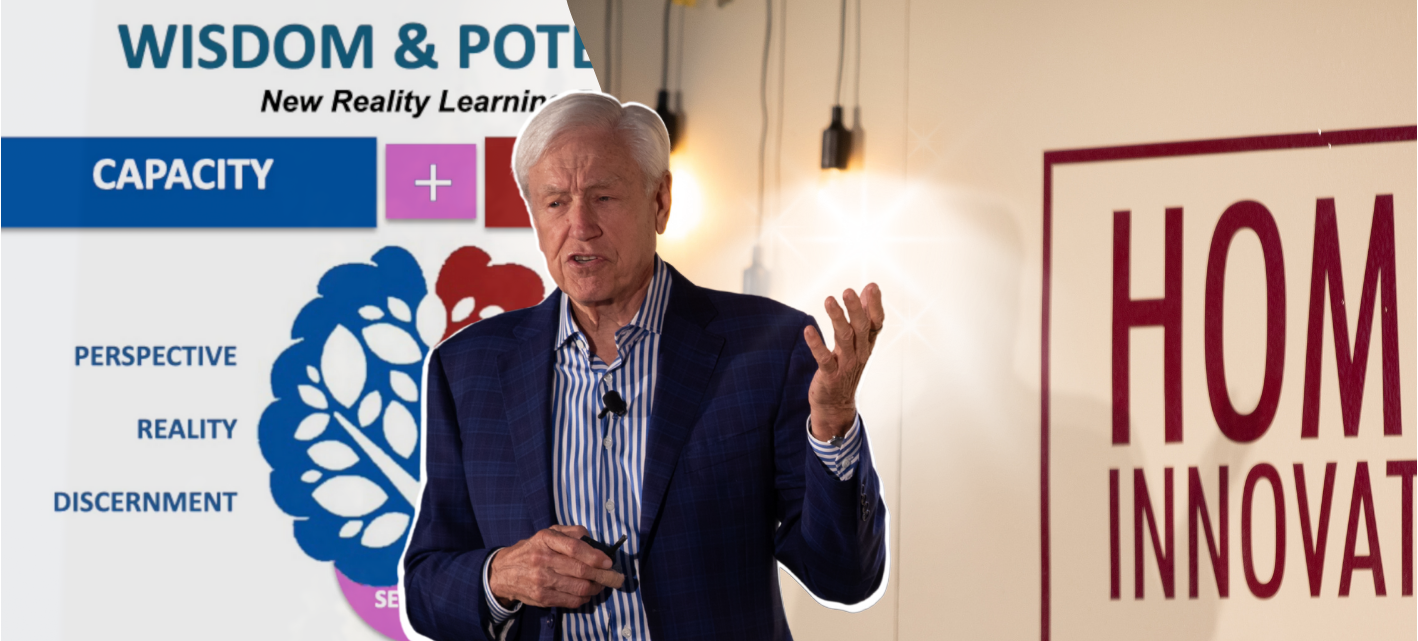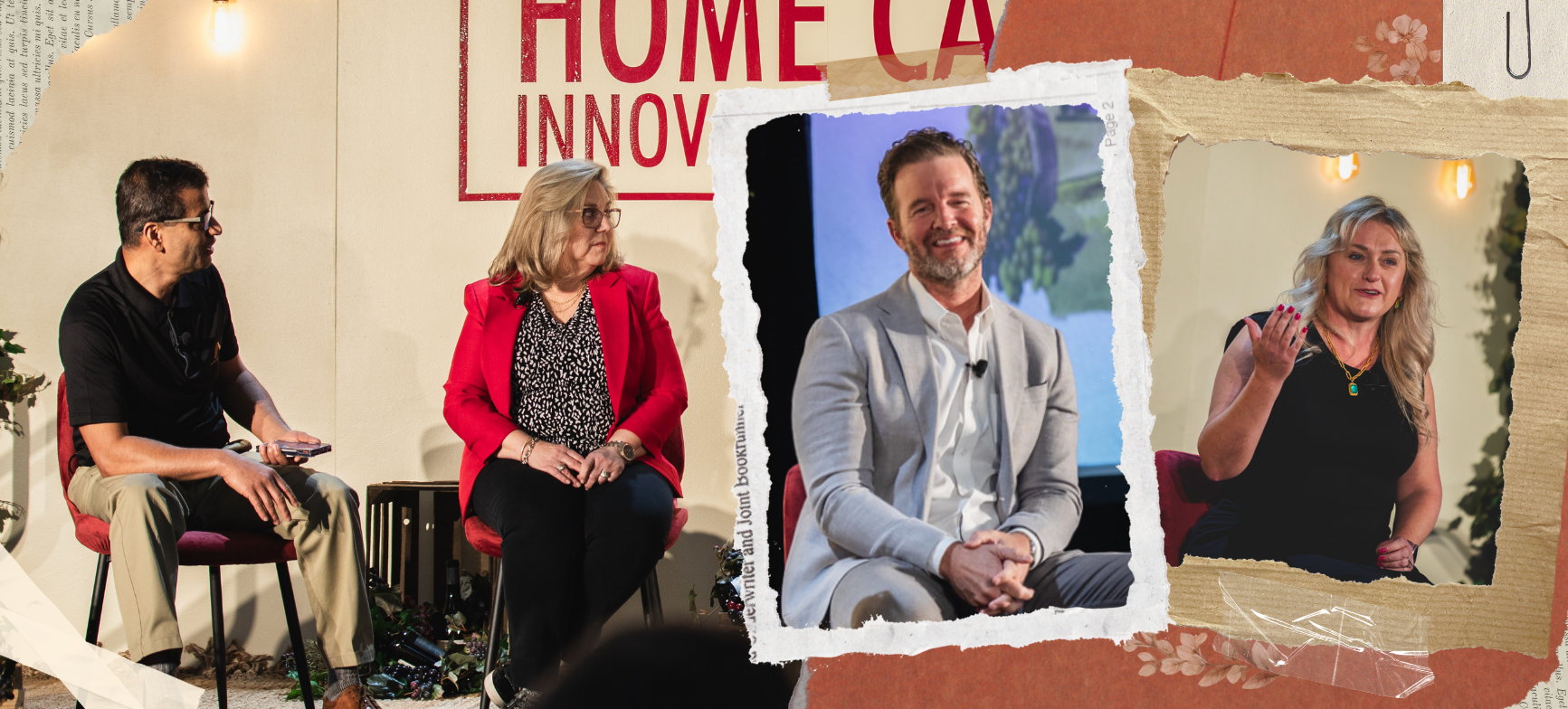Note: Since Bill Dombi's presentation at the Home Care Innovation Forum, CMS announced a proposed rate cut to home health providers of nearly 4% for 2023, with additional cuts expected over the coming years. CMS also proposed an additional 5.65% permanent rate reduction to begin in 2024 based on the same payment methodology.
The National Association for Home Care & Hospice has sued CMS and the US Dept. of Health and Human Services over the proposed reductions.
“We strongly believe that CMS is wrong on the law and on what makes sense,” Dombi told HCIF on Monday. “The only option for providers to cope with this proposal is to reduce care access. We have taken the fight to both Congress and to federal court to preserve home health care. Winning is essential.”
***
Home health care’s biggest advocate took to the stage at the Home Care Innovation Forum in San Diego with a weather-themed presentation forecasting the future of the industry. Although there are cloudy spots on the horizon, in Bill Dombi’s assessment, skies are mostly sunny moving forward.
Hospital-at-home has two more years left as a waiver program before being permanently placed in Medicare. Dombi, President and CEO of the National Association for Home Care & Hospice, expects those programs to grow by 50 percent over the next five years.
More and more, clinical services that have traditionally been administered in facilities – like chemotherapy, dialysis, and others – will be performed in the home, Dombi said. Despite regulatory headwinds or reimbursement issues from managed care plans, it would be wise for private-pay and home health providers to prepare for this coming reality.
“This is an opportunity beyond all opportunities,” said Dombi. “But you have to invest some of yourself in that ‘future tomorrow.’”
An industry notoriously slow to change, Dombi urged home health care leaders in the audience to sweep away stale thinking that, even if it had sustained operations in the past, does not allow for innovation to flourish. Fresh ideas can come from anywhere – you just need to listen to those in your organization.
“You already have people in your organizations that have solutions to the issues you’re facing,” he said. “As leaders, we often think we know everything until we meet someone who’s clearly smarter than us. Then we steal that idea and claim it as our own when we should be reaching for those ideas from within.”
Dombi turned to technology, another issue that the industry has been slow to adopt, but one that is gaining traction.
“When we look at technologies, that horizon you’ve been looking for is now a reality,” he said. “But this is a set of tools for the delivery of care, not service in and of itself.”
Still, costs for current technologies – like telehealth and remote patient monitoring – can be significant. For example, the Medicare home health benefit does not pay for telehealth, while UnitedHealth did pay for such tech during the pandemic.
“Government programs will be like that. Don’t wait for them to take action. Move forward,” Dombi said. “You need to join with us and others in an advocacy effort to bring technologies into home care with funding and support.”
On one of the biggest tech trends of today – AI – Dombi asked, “Is there a more perfect fit for Artificial Intelligence than care in the home, to guide clinical pathways, to maximize the productivity of staff?”
On the staffing issue, Dombi offered a fiery forecast – with demand for various services in the home exceeding the supply of specific workers to meet them, he sees a coming heatwave.
“Is there any industry in the world that complains about demand exceeding supply?” he asked. “Almost every discipline (in healthcare) is wanted in home care. They (patients) need what you have. To be innovative is a simple target – not recruit and retain, but rather retain and recruit.”
Chronically short-staffed and often scrambling to fill vacant shifts, home care leaders could learn something from Southwest Airlines, which Dombi flew to get to HCIF.
“What you notice about Southwest is two things: First, their planes are in the air more than any other airline, and rarely do you find they don’t have a plane staffed. They found a way to do that,” he said. Rapidly emerging technology solutions in this area can help home care operators solve complicated staffing challenges.
Still, it wasn’t all sunny skies.
Dombi talked about multiple headwinds facing providers, including competition, consolidation, and retail giants like CVS and Walgreens taking potential patients away as they move more fully into the healthcare sphere.
“What do you do to stay ahead of this? Eyes wide open,” he said.
Those headwinds and challenges can be scary, especially for smaller providers. But Dombi sought to ease that anxiety with some context.
“For a long time, we have sung the song of the death of the small provider,” he said. “So why is it that we have more home health agencies, more hospices, more private pay agencies today than we ever have before?”
The vast majority of the thousands of providers in the nation are smaller, Dombi said, adding that the biggest operators only make up 15% to 20% of the total marketplace.
“Don’t run from the competition but don’t forget about them as well,” he said. “All care is local, just as all politics is local.”
Regardless of daily census, annual revenue, or geographic reach, Dombi had a succinct piece of advice for all operators in the room to put themselves in a position for a sunlit future.
“Continue to work on value and continue to work on assuming some risk. That is what the state-of-the-art is for the delivery of health care in all capacities today,” he said.
Posted by
Join us!
The retreat for home health care and hospice leaders innovators.
May 17-19, 2026 | Palm Springs, CA




-2.png)


-2.png)


Comments